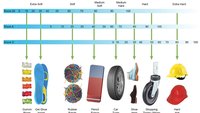Posted by: Vikb
There are lots of well documented ways to house hack to reduce living expenses, but it really depends on what you would accept as a solution. Living in a van or RV long-term isn't something everyone is willing to do. If you are it can be a nice idea. Moving someplace low cost is great if you are happy living there. You can find lots of geographical arbitrage options if you are keen to live outside Canada for part or all of the year. If you are happy with roommates or renting out your living space on AirBnb you can come up with a bunch of living options that are low cost/no cost/make you money. Moving from owning a paid of house/condo to renting [especially in a coop] can unleash all sorts of capital.
A few ideas from friends I know:
- A friend moved from BC to NB and bought a 40acre rural property with a house on it that was foreclosed by the bank. He paid ~$35K cash. The house needs a lot of work so he's tackling that himself one project at a time. Most of the land is forested and he's harvesting trees for lumber and heating fuel.
- A friend who is quite wealthy got into a coop townhouse with very cheap rent and let's his wealth compound in the stock market.
- I know a person bought a property with a couple larger buildings on it in a popular tourist area. They turn the buildings into 4 suites. Lived in one and rented the other 3 out as a business that made them money. Did that for a number of years and then sold the property/business for a nice profit.
- A friend had an acreage and put an RV on it. Moved into RV and rented out the main house.
- A friend moved to Mexico full-time for the lower cost of living.
- I know a person who had a house in a tourist area. They rented it out and when it was rented they took their RV and went camping. When it wasn't rented they lived in the house.
- I have friends that built a tiny house on wheels. They then rented a house outside town with a large lot and put the tiny house next to the main house. They sub-let out the main house to cover the rent.
- I was just talking to someone in Comox that planned to retire shortly, sell their home and move to the Philippines for the low cost of living.
- I have two friends that are living in slide in campers on their trucks and travelling around Canada/USA/Mexico doing fun stuff living super cheap.
- I know quite a few people that didn't change their living arrangements, but took a hard look at how they were spending their money and reduced their cost of living significantly without changing how much they enjoyed their life. That meant needing less income to live and fewer investments to retire.
- I know lots of people that retired and then took on easy PT jobs that made them money and got them something they wanted [ie. season's pass at resort, discounts at bike shop, discount at grocery store/hardware storem etc..]
- A friend takes in high school kids from other countries and gets paid $1K+/month to provide a room, food and a bit of parental supervision.
The idea of using a home equity LOC can work. I'd prefer that to a reverse mortgage. If it was me I'd consider moving someplace with lower home prices and selling what you have. If you are living in Vancouver there should be quite a few options of places to live that would allow you to access a decent chunk of equity. Maybe all of it if renting is an option. You can then invest the equity and it can grow until you need it.
A couple more thoughts about using a LOC that occurred to me. Your bank can terminate your LOC depending on your financial situation like home values dropping in which case you may suddenly not have access to those funds and have to pay off the outstanding money owed. Not highly likely, but if it happens it will come right when you are least able to handle it. You can take money out of your home [LOC or mortgage], invest it and then deduct the cost of borrowing vs. the capital gains/dividends/interest on your investments. That would make borrowing less onerous, but there needs to be a direct paper trail between the borrowed money and the invested funds. See the Smith Maneuver as an example --> https://wowa.ca/smith-maneuver-canada
Thanks for taking the time to document all that. Some food for thought!
Im not really concerned about the bank calling in LOC early as the max credit they've agreed to is about one third of its current value.
If real estate drops that much, I think the whole of Canada will implode so I'm sure the banks will have bigger problems to worry about 😉







